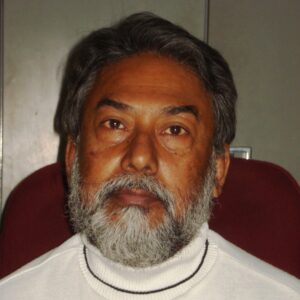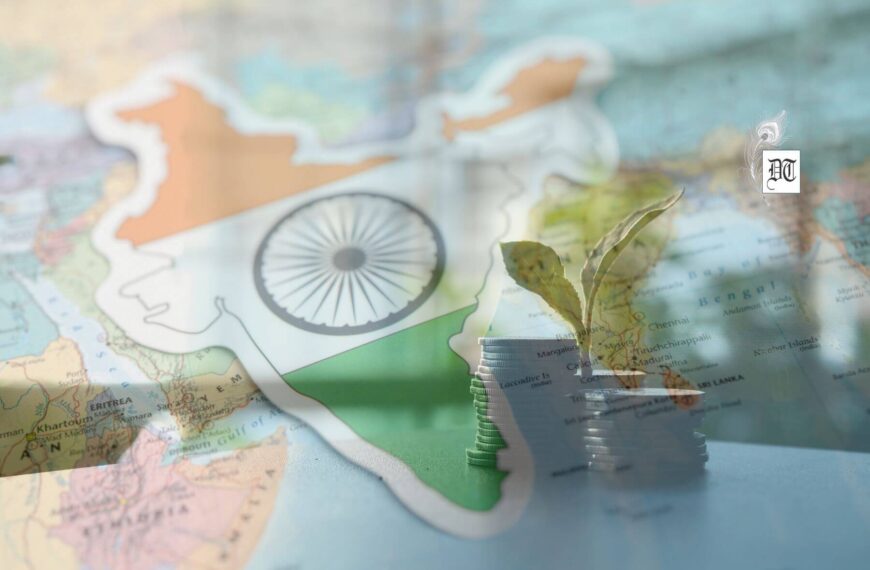BJP steamrolled the 2017 Assembly elections in UP. The narrative of the winning party is that the people’s mandate were for the development of UP. Bhaskar hopes that now Modiji and his party would create job opportunities in the state so effectively that soon we might see migrant labourers coming to this state. That would be true development. He shifts his gaze and tells us how the poor are exploited. First is the case of Munna and then that of a sub-contractor who engages the poor. Read more in the weekly column, exclusively in Different Truths.
As expected the BJP has steamrolled the 2017 Assembly election – with the three-fourth majority, wiping out the SP-Congress combine as well as the BSP, in Uttar Pradesh. Eligible voters who cast their votes that include the rich and the poor, Hindu and Muslim, men and women, low caste and high caste, rural and urban, have expressed all their faith in BJP (and associated Hindutva, Ram Mandir and all that) for development. It was long delayed for UP. The state needs development and our beloved Prime Minister has the relentlessly announced that his single agenda is development. It was the PM versus the rest. The mass opinion in favour of the PM is that Modiji kuch toh karke dikhayen hai (they were referring to demonetisation that is perceived as an attack on black money).
BJP played it well. A little bit surprising for me is the unexpectedly low number of Assembly seats by the BSP. I thought Mayawati was the representative of the poor and the Dalit in UP, the number of the latter is more than half or that represents more than the bottom half of the population in UP. Voters obviously emerge from the population in the working age. I had some doubt in the recent past that BSP was not the trump card this time for the intellectuals, in a reputed social science research institute, writing on Dalits, kept them far away from Mayawati and aspired to be in the Hindu league. The administration also started being in touch with the political determinants.
UP is the heartland of India and values the caste system. So people are easily mobilised along caste line – for whom they normally cast their votes. Numerically then, the BSP should have a chance to score well. That did not happen. The absolute majority has bestowed on BJP the absolute responsibilities to develop UP. Not only the physical infrastructure but more by development of education, health institutions and industrialisation of all sizes (Gandhian and Nehruvian). I personally look forward to see a greater inflow of population from the rest of India to UP to show the increase in the carrying capacity of the state of UP. I look forward to the leadership of beloved PM of India (in UP he is known as Modiji) to ensure that UP shows the right path to rest of India. India cannot develop if UP remains underdeveloped.
The Story of Munna
Every authority, self-claimed or otherwise, likes to have an enemy (read victims) to prove its superiority. Little did I understand that it could come down to such a low level? I observed the absence of Munna, a daily wage labourer engaged in cleaning work and other unpaid works in our social science research institute for some days. When I probed silently, I came to know that he had been stopped from entering the gate of the institute properly managed/protected by gunmen for around seven days. So his earning for those days were lost. What was his offence? He had also been engaged by one faculty member residing within the same campus, who temporarily is at loggerheads with the current administrator. Unpaid labour is justified for you when you are in power. How could others grab the same authority to dispossess the poor? So Munna was punished.
Munna is an illiterate manual labourer. His wife, a homemaker, is illiterate too. They have four children. Munna cannot speak/respond well as most of the subalterns do in India. So I had to guess his responses. He looks down while speaking to persons like me, in spite of my best efforts to tell him of our borrowed concepts of equality from France.
Munna cannot speak/respond well as most of the subalterns do in India. So I had to guess his responses. He looks down while speaking to persons like me, in spite of my best efforts to tell him of our borrowed concepts of equality from France.
Munna works for around 25 days per month on a daily allowance of Rs. 200/-, I was informed. He lives with his family beside the main road in a semi-pucca house, delinked from other amenities and education. For his family bread-earning is the first and last priority.
I still wonder who was taught a lesson by punishing Munna!
Poor against the Poor
I was of the idea that the system that evolved was anti-poor. Much to my surprise, I have recently learned that the poor are also against the poor – it is not Partha Chatterjee’s politics of the governed, and it is not how the affluent engage the hill poor against the plain poor or the Adivasis against the minority and so on. It is ingrained in the system. Let me explain how.
Recently, I got a rare chance to talk to the daily wage labourers engaged in our social science research institute at Allahabad, remotely engaged by a sub-contractor Sharma. I decided not to approach the sub-contractor for he is the employer and labourers responding through him only would not respond or would give a wrong response.
Just as I think I am an intelligent social scientist as a pedestrian economist, others are more intelligent to obstruct me to get the relevant details for that might disturb their easy route to get the cheap or free labourers or whatever else they might have in their minds. I am not thinking remotely about the mobilisation of these labourers unlike what Marx thought about long back. I was interested to know the survival strategy of these labourers.
Rather than beating around the bush, let me tell you what I found post-lunch period was the surveillance by the sub-contractor supported by a muscleman. This could have been to see if the labour ers were working. This could also be that I did not get further chance to get their interviews direct. The reason why I doubt the real intentions of these contractors/sub-contractors is my direct experience in brick kilns and elsewhere.
ers were working. This could also be that I did not get further chance to get their interviews direct. The reason why I doubt the real intentions of these contractors/sub-contractors is my direct experience in brick kilns and elsewhere.
But in this case, the sub-contractor was not that affluent. This means on the economic ladder below some level, the sub-contractor controls (goes against if need be) the labourers which perhaps the sub-contractor had been himself a decade back. When the once exploited become the exploiters they are far more brutal. In fact, the poor are the worst enemies of their own class!
©Prof. Bhaskar Majumder
Photos from the internet.
#RandomJotting #Labour #HinduMuslim #AssemblyElection #UP #BJP #Illitrate #DifferentTruths





 By
By

 By
By